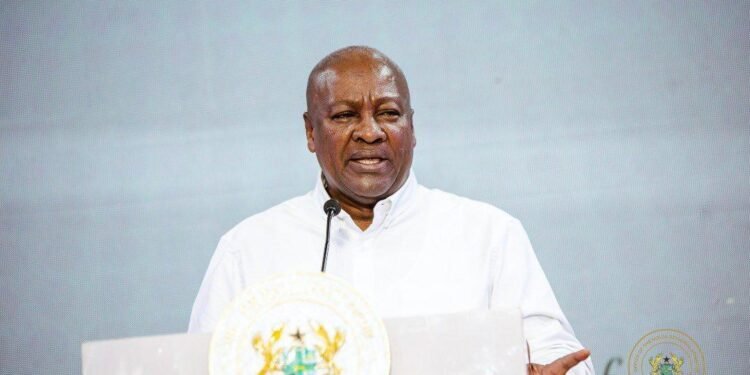In a landmark study conducted by the Ghana Chamber of Mines, it was revealed that women now represent approximately 10% of the total workforce in the large-scale mining sector.
This figure marks the highest level of female representation ever recorded in the industry, highlighting significant strides towards gender diversity and inclusion.
At the official inauguration of the BCM Women in Mining chapter in Accra, Lawrencia Boahemaa Awuah, Manager of Human Resource and Operations at the Chamber of Mines, delivered a speech on behalf of Dr. Sulemanu Koney, the CEO of the Chamber.
In her address, Awuah emphasized the Chamber’s commitment to fostering a more inclusive environment within the mining sector. “Traditionally, the mining industry has been deemed as male-dominated with women constituting a small percentage of the total workforce,” she stated.
Awuah added that the recent demographic study showing 10% female workforce participation is a testament to the positive changes taking place.
The Chamber of Mines has expressed satisfaction that a significant number of these women are occupying technical and senior roles. This shift not only challenges traditional gender roles within the sector but also underscores the capability and potential of women in mining.
“The Chamber and its member companies will continue to prioritize gender diversity and create opportunities for women to participate and contribute fully to the sector.”
Lawrencia Boahemaa Awuah
Awuah also expressed optimism that the BCM Women in Mining Chapter would further enhance the success stories within the industry, with a commitment from BCM’s management to support the growth and objectives of this group.
Inauguration of BCM Women in Mining Chapter
Dr. Georgette Barnes Sakyi-Addo, the President of Women in Mining Ghana, officially launched the BCM Women in Mining chapter. In her remarks, she urged women to strive for excellence in their professions despite the challenges they might face.
Sakyi-Addo lauded BCM’s management for fostering a conducive environment for the chapter’s establishment, noting its potential impact. “The Women in Mining chapters play a crucial role in driving growth in organizations,” she said.
“Having a vibrant chapter helps deal with a lot of issues. Sometimes the chapters act as a source of research, because when we are organized like that, it is easy to find out what is happening and find solutions.”
Sakyi-Addo
Sakyi-Addo expressed her vision for a future where the mining sector is inclusive enough that separate Women in Mining groups are no longer necessary. “I wish that we will get to a point where there are enough women, where the mining sector will be inclusive and we don’t need to have Women in Mining groups,” she said.
For now, however, she highlighted the importance of increasing women’s participation in the sector as an economic empowerment issue. “The natural resources belong to Ghana and if your daughter can get a job there, you know she is going to get good pay and training and some form of security,” she added.
Economic Empowerment through Increased Participation
The BCM Women in Mining chapter represents a significant step forward in addressing gender disparities within the mining sector. By providing a platform for women to connect, share experiences, and advocate for their rights and opportunities, such chapters play a vital role in fostering a more inclusive industry.
The Chamber of Mines’ dedication to promoting gender diversity and the proactive efforts of companies like BCM demonstrate a growing recognition of the valuable contributions women can make to the mining industry.
As more women take on technical and leadership roles, the sector is likely to benefit from a broader range of perspectives and talents, driving innovation and growth.
The Ghana Chamber of Mines’ study and the establishment of the BCM Women in Mining chapter mark important milestones in the journey towards gender equality in the mining sector. With continued support and commitment, the industry can look forward to a more inclusive and dynamic future.
READ ALSO: Investors Flood Ghana’s Money Market Despite Declining Yields























